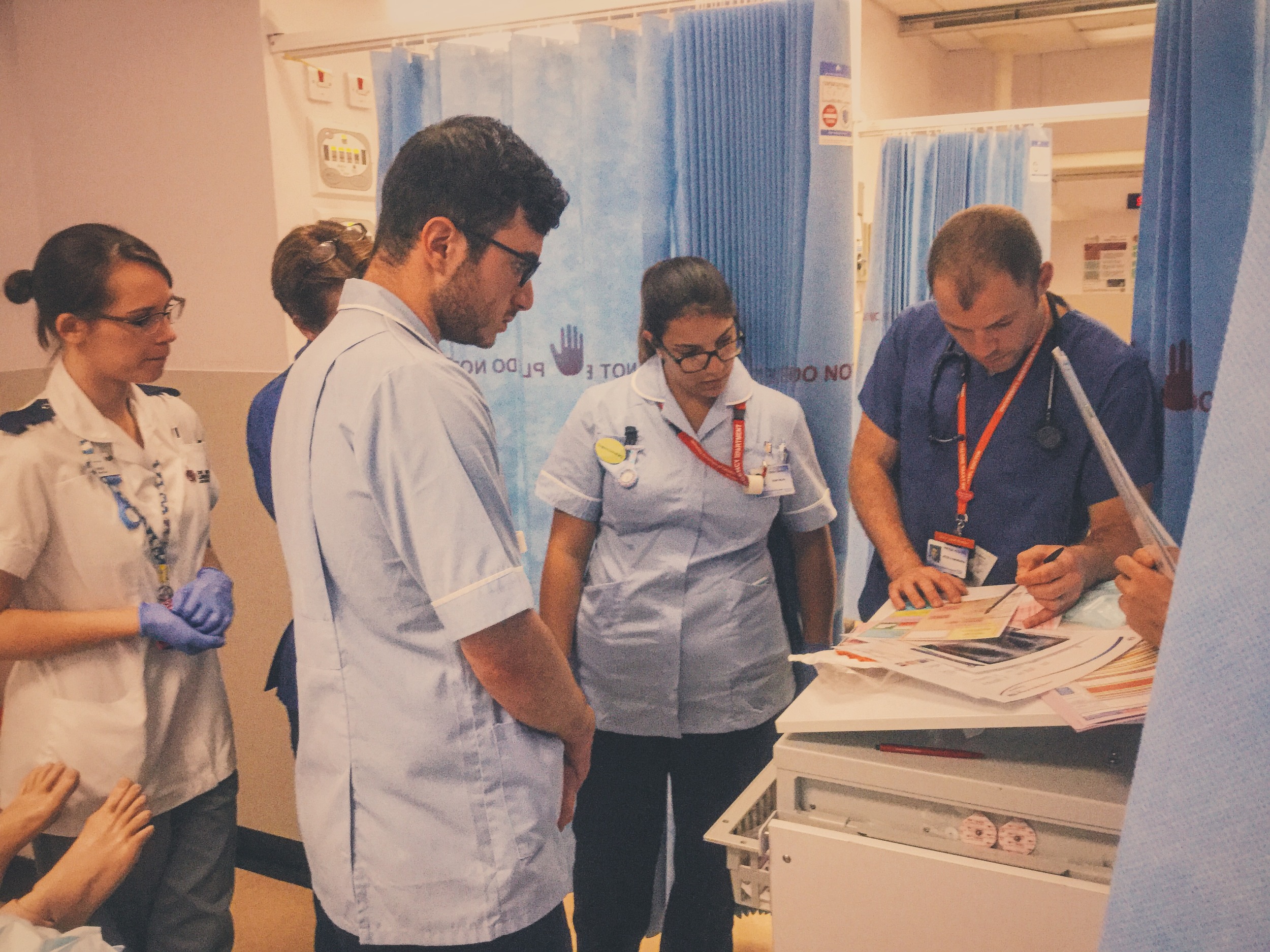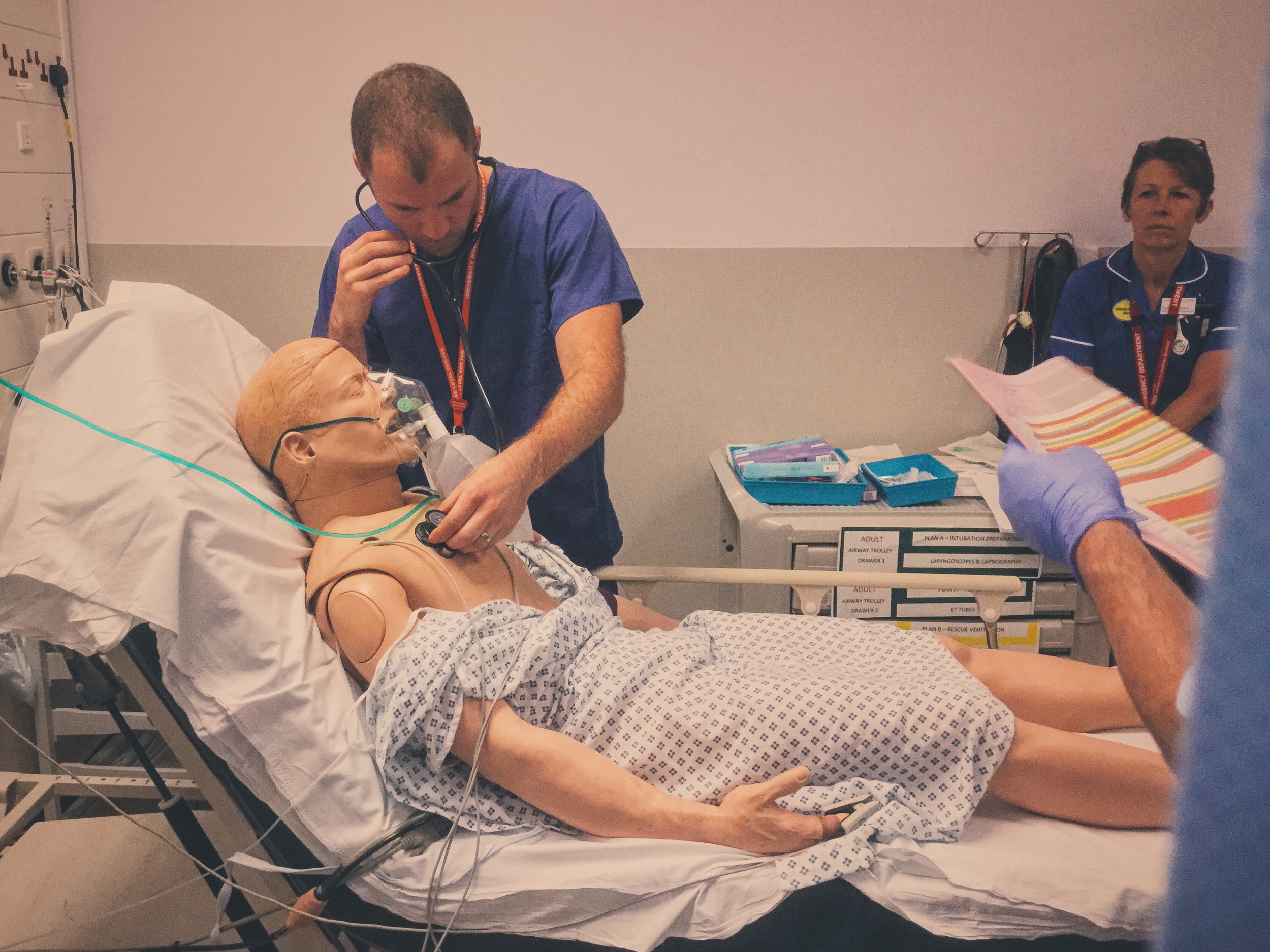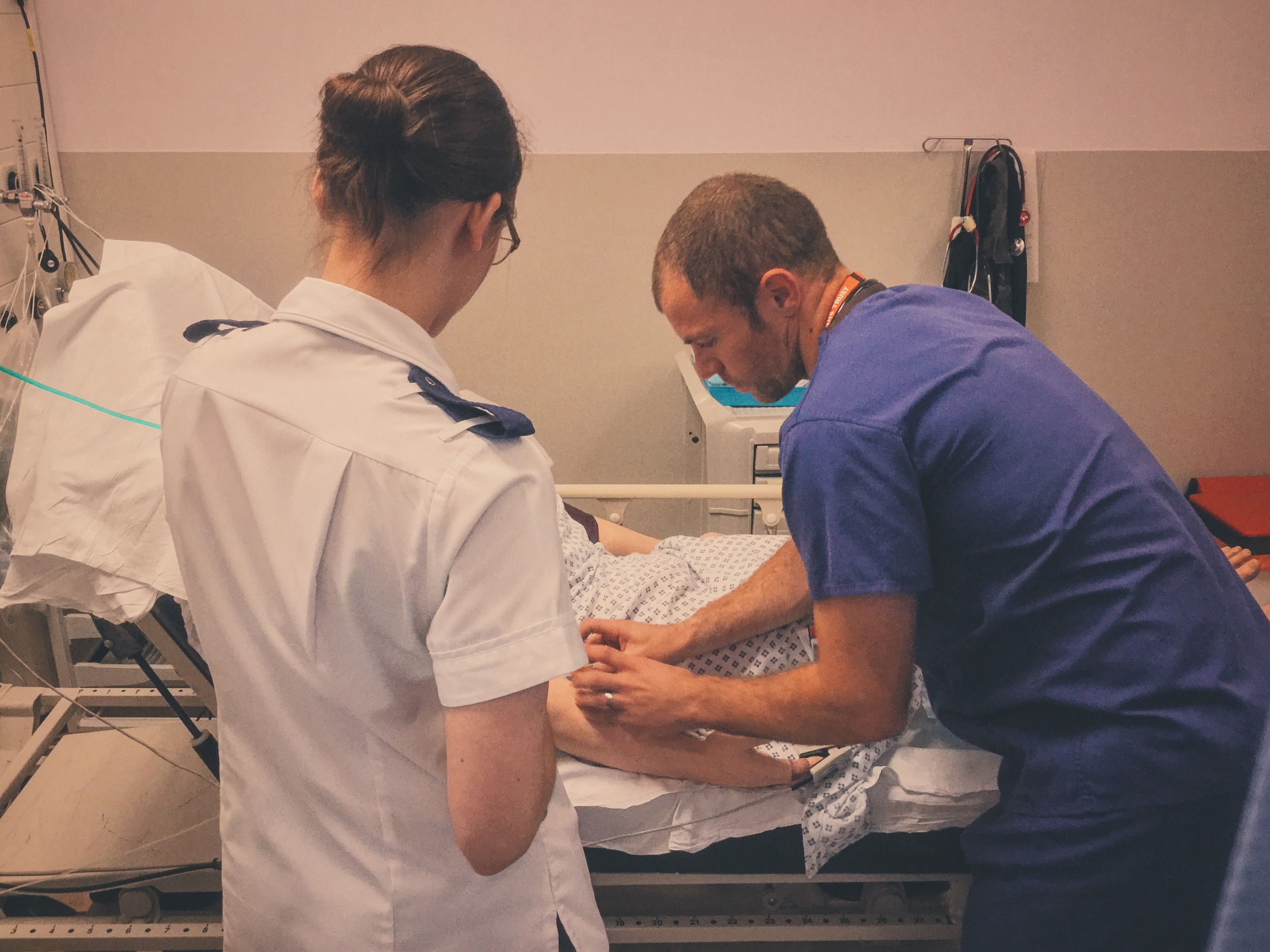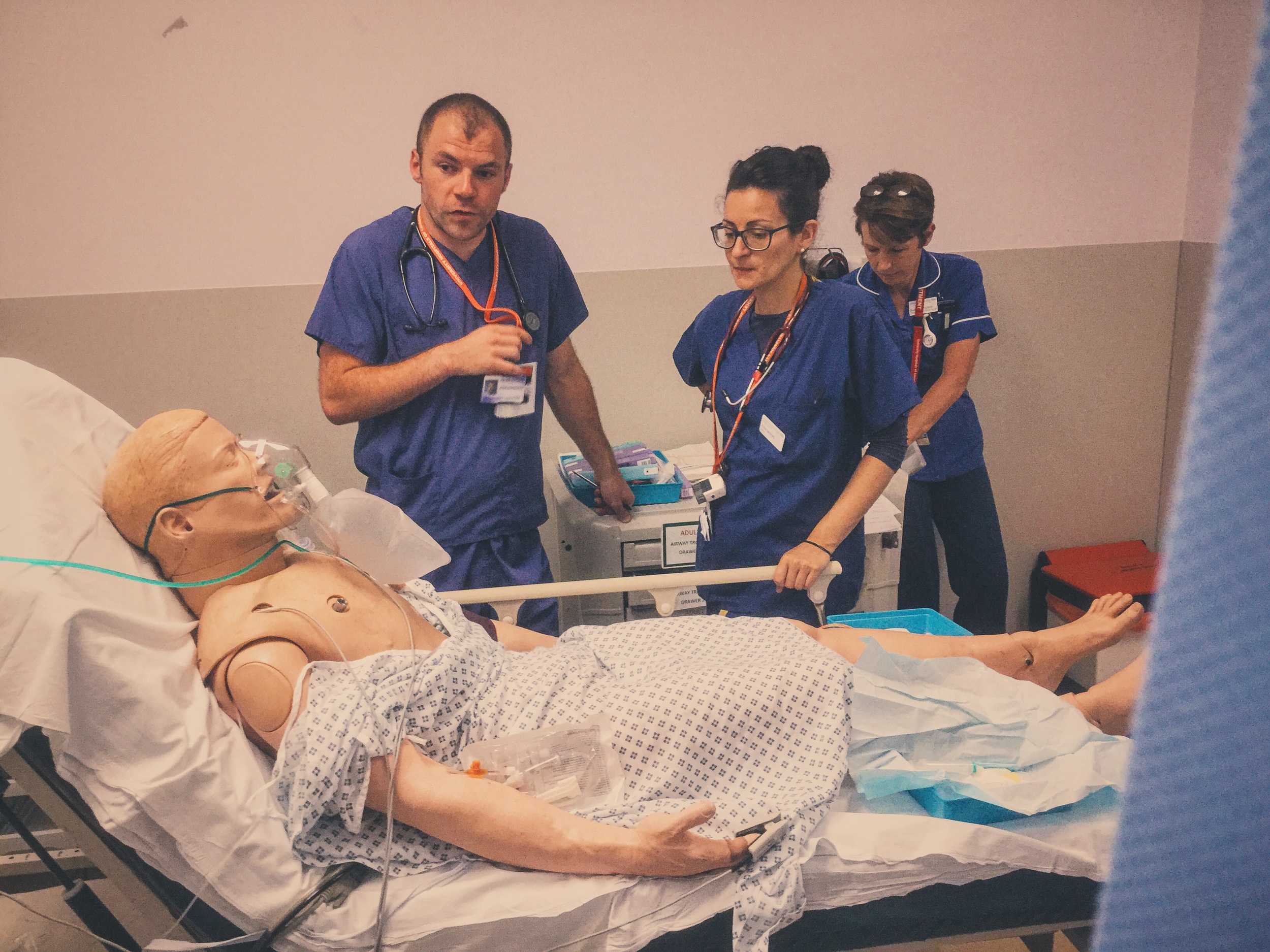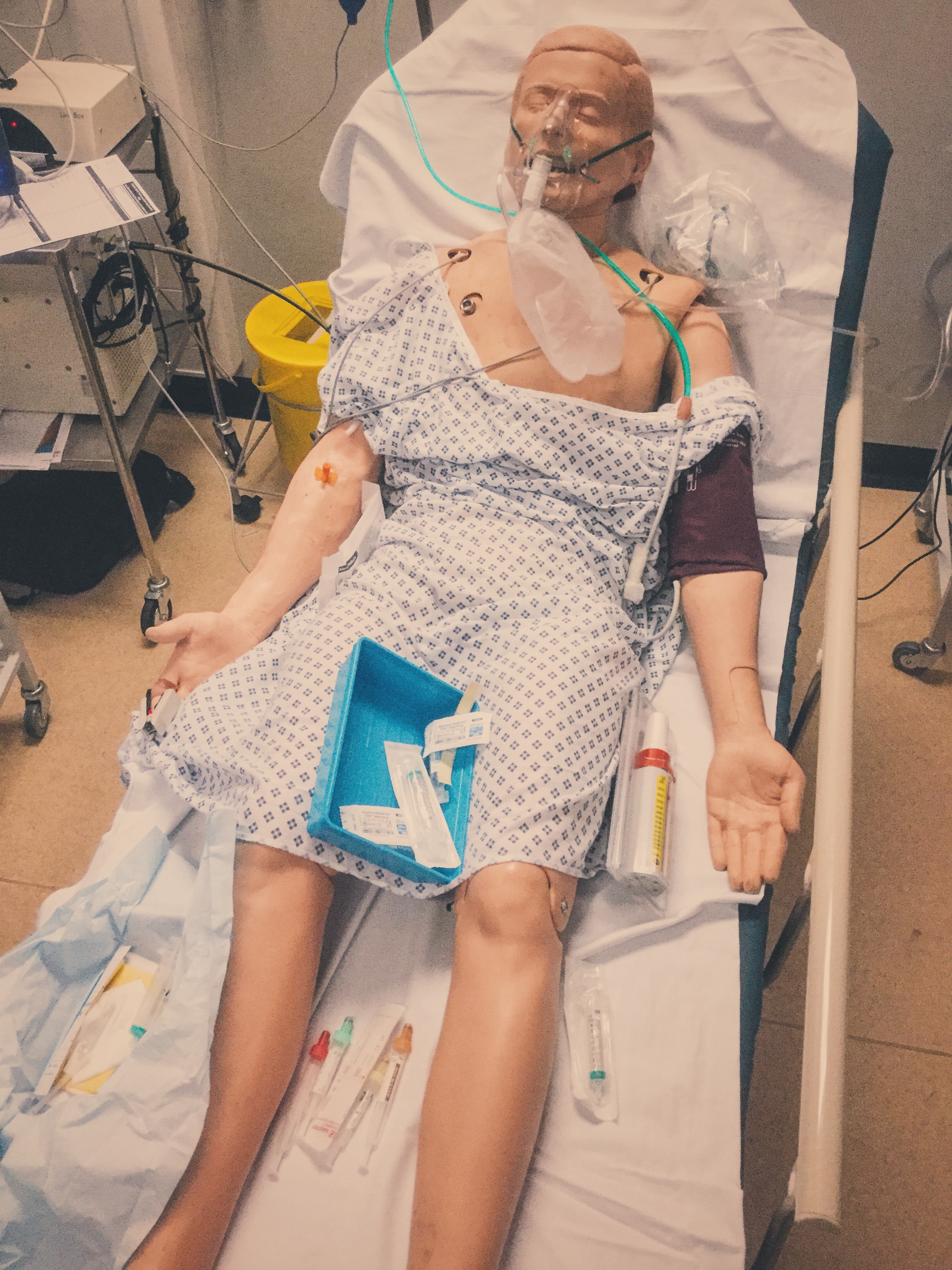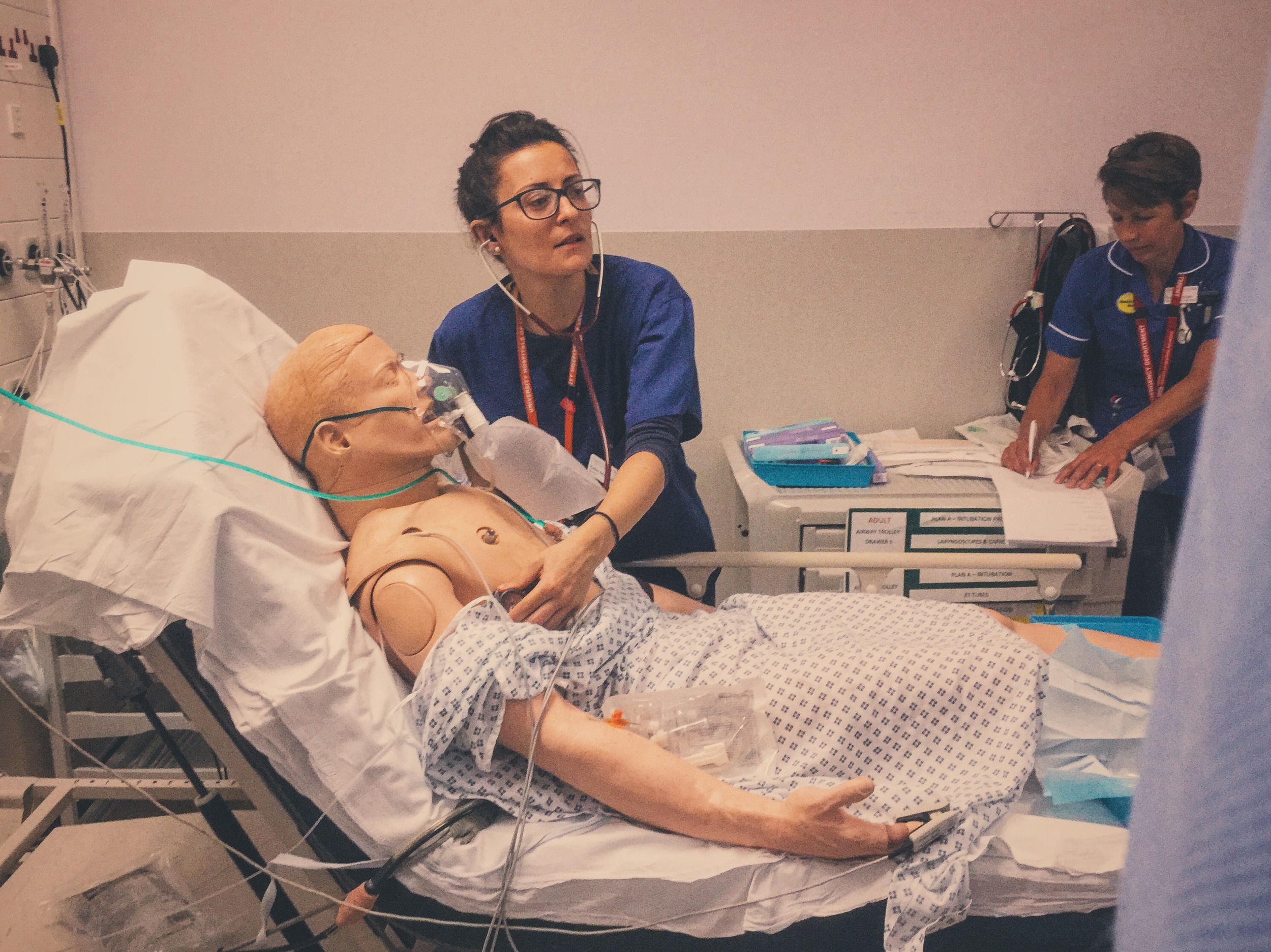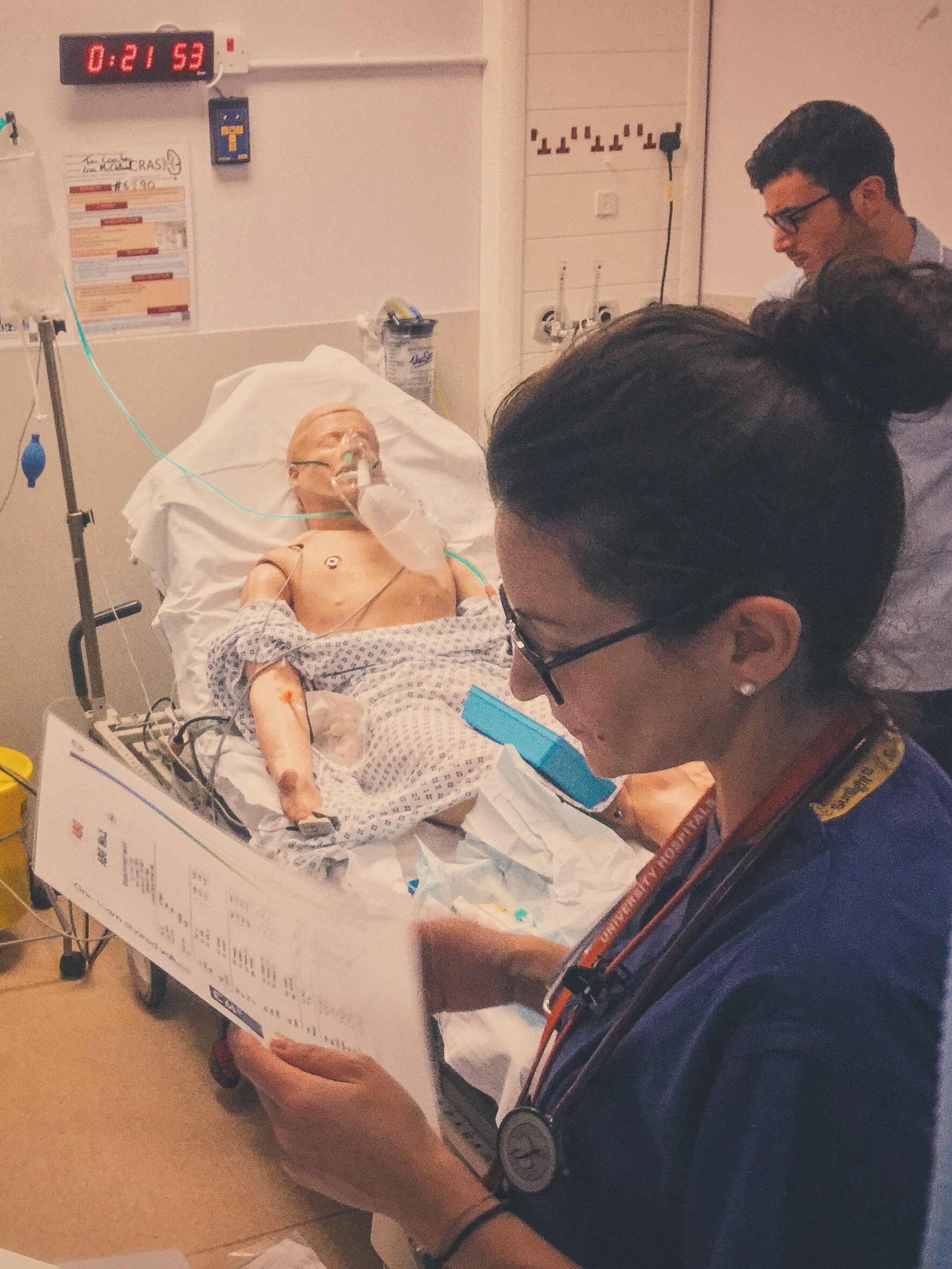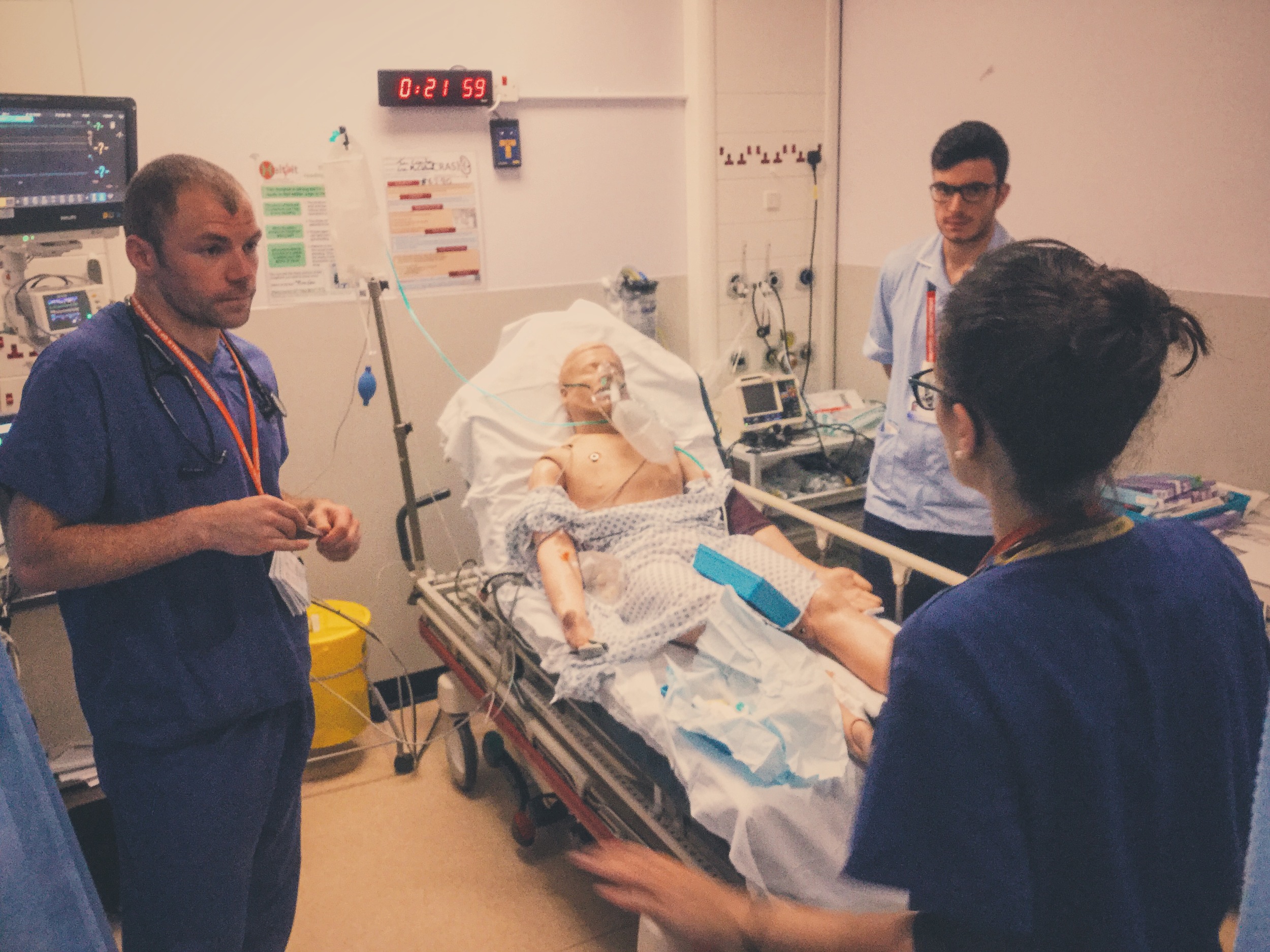#SimBlog: Adult Asthma
“41 year old male with increasing DIB over night, chest feels tight.”
Observations
A – Patent
B – RR 30, sats 88% (Air)
C – HR 130, BP 126/78
D – Alert
E – Temp 36.7°C
Clinical Findings
Bilateral Wheeze
Unable to complete a sentence
Cannot perform peak flow initially
Why We Simulated
Correct assessment of the severity of asthma is essential. The joint BTS/ SIGN guideline outlines both the clinical features of moderate/ acute severe/ life-threatening/ near fatal as well as the management steps. All those working in ED should be familiar with the document and know when to escalate care appropriately.
Those with features of life-threatening or near fatal asthma require immediate management by experienced clinicians to prevent further deterioration.
Effective communication between the treating clinician and senior support or critical care is vital for this to occur. Our series of videos on the SBAR communication tool can be found at our YouTube channel.
For our scenario an example of using SBAR when discussing with ITU might be:
Situation: "Hello my name is Jamie, I am calling from ED resus as I would like your help with a patient with life-threatening asthma."
Background: "He is a 41 year old known asthmatic, who has had increasing DIB over night."
Assessment: "Currently he has features of life-threatening asthma with an arterial paCO2 of 5.7. I have given him back to back nebulisers and steroids. We are also about to start some magnesium"
Recommendations: "Can you come to assess whether you feel critical care support is needed?"
Further Reading:
- #EM3: Moderate Asthma (Lightning Learning)
- #EM3: SBAR (Lightning Learning)
- BTS/SIGN: Asthma Guideline
Learning Outcomes
Use your pre-alert time for preparation. Think: do you have the correct skills, equipment or guidelines ready?
When handing over care or on the arrival of a new team member consider use of SBAR to give a structure.
Guidelines and pro formas can provide a prompt for treatments and investigations.
Positive Feedback
Identified that life-threatening criteria present.
Involved critical care team early.
Compensated for staff skill mix by sharing jobs.



